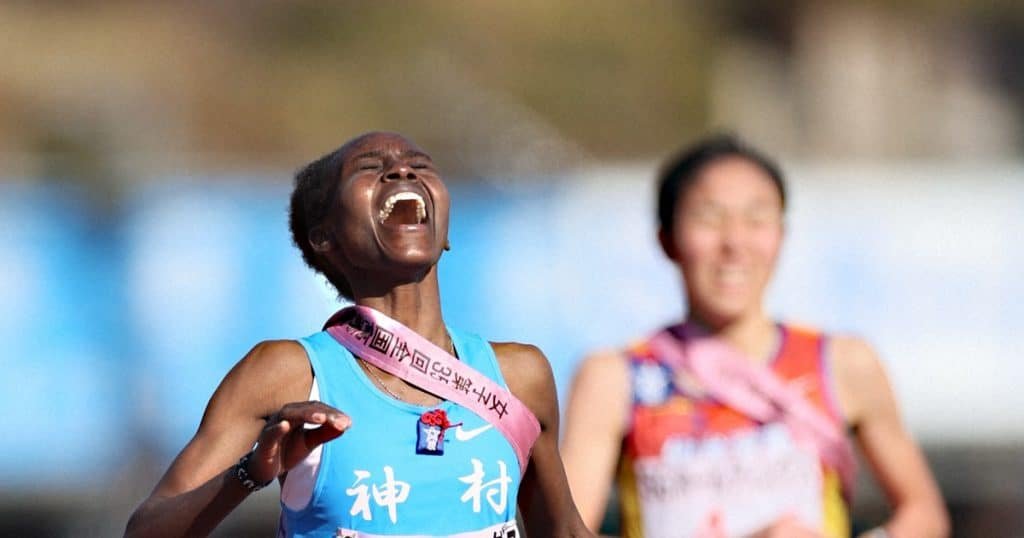Each week, here at Osaka.com, we bring you a selection of some of the top stories about Osaka making the local and national news here in Japan. Sometimes it’s serious, sometimes it’s funny, but it’s always direct to you, from Osaka.
Here’s a look at some of the stories hitting the headlines in Osaka this week
Table of Contents
Ekiden Race to Limit Foreign Participants

One of the biggest events in Kansai’s sporting calendar was marred by controversy last weekend. The annual High School Ekiden long distance relay race took place on December 24th. Students from all over Japan gathered for this, one of Japan’s most storied high school sports events.
Unfortunately, the girls’ race ended in somewhat controversial circumstances, prompting a response from organizers that has only sown the seeds for further conflict.
Osaka’s Kunei Joshi Gakuen High School finished in a highly respectable 4th place, just behind local rivals Ritsumeikan Uji, from Kyoto. However, the winners were Kagoshima’s Kamimura Gakuen. Their final runner, Kenyan national Caroline Kariba, overturned a deficit of more than 1 minute in the final 5 kilometers, to win the race by a mere 1 second.
Kariba’s incredible individual performance to win the race was not met with universal acclaim however.
Her win once again raised the specter of foreign students and their influence on this Japanese institution. Some coaches said that bringing in superior athletes from the likes of Kenya, which has a long history of world class long distance race winners, gives some schools an unfair advantage.
Organizers responded by announcing new limits for foreign participants. Already, each team is allowed only one foreign member, and they cannot run the longest part of the race. In the case of the high school Ekiden race, this is the opening 6km stretch.
However, many foreign runners, such as Kariba, were then deployed in the second-longest part of the race, the final 5km. From next year, this will not be allowed. Foreign students can only run in the shortest part of the race.
Race Limitations Bring Mixed Response

The rule changed was welcomed by some public schools. These schools often claimed that having the financial resources to bring over promising young talent from abroad gave private schools an unfair advantage. However, on the other side of the debate, supporters of foreign students argued that the contest should purely be about sporting merit. If someone can run faster than everyone else, then where they come from is irrelevant.
The insinuation is that some private schools abuse their financial advantage to bring in foreign students purely with the aim of winning the Ekiden race. There is however no evidence that this was the case for Kariba.
With foreign participation already limited to one member per team, advocates for greater internationalism say that these further restrictions fly in the face of high schools’ claims to be open and welcoming to students from abroad.
While Kariba enjoys her win, the repercussions of the rule change it has prompted will remain for some time to come.
Heart Failure Risk Prompts Race to Find New Therapies

A study published by a group of Osaka scientists this week warns of a coming danger in the wake of Covid-19. The scientists, from the research group RIKEN, announced their findings this week. They said there is clear evidence of an elevated risk of heart failure among patients with infected heart cells. Under laboratory studies, they found that, whilst some cells recovered after Covid-19 infection, not all of them did. This may be down to the abundance of ACE2 receptors in heart cells. ACE2 receptors are the most common pathway for Covid-19 infection to enter human cells. The danger here is that patients may not even be aware of their impaired cardiac function. The elevated risk does not require that the patient have an existing heart condition.
Research will continue into the new year. The group said that finding an effective diagnostic testing routine is crucial. This will be the key to avoiding a “heart failure pandemic” in the mid to long term. “We are now in a race against time” one expert said.
However, RIKEN also emphasized in its findings that not all patients with persistent infection in their heart cells will go on to develop heart failure. Research remains at an early stage.
And Finally…

Osaka’s highly anticipated casino resort plan received a boost this week. After lengthy deliberations, Nagasaki leaders announced that they would not approve plans for a similar resort in the southern prefecture.
This leaves Osaka as the only confirmed casino resort in Japan for the foreseeable future. The resort is set to open in 2030. The lack of any domestic rival for at least the next decade or so will no doubt boost interest in the project. Local lawmakers hope this will also promote further inward investment. Although Osaka’s casino plan was finally approved earlier this year, concerns remain around the resort. In particular, Osaka residents worry about the influence of organized crime. There is also anxiety around the impact of an expected surge in inbound tourism from elsewhere in Asia. Time will tell if the resort proves to be a success.
That’s all for now but be sure to check back again same time next week for another round of this week in Osaka!

















